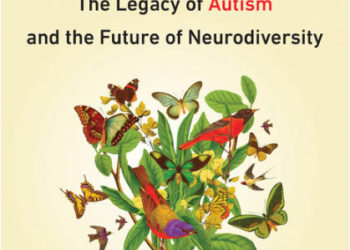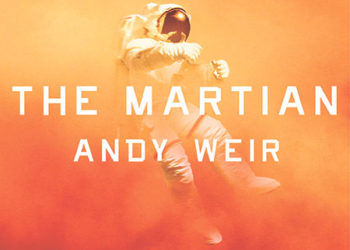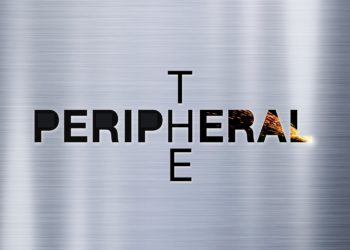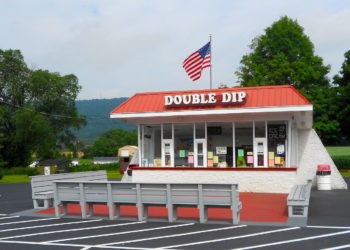Editor’s Note: Continuing an annual tradition, we take a moment to pause at year’s end to look back on the best books we encountered. As always, this is not a “best books of 2017″ list, but a list of the best books the Chefs read during 2017 — the books might be classics, a few years old, or brand new. This is one of the great things about books in all forms — they endure, invite visitation and revisitation, and beckon with ideas. Here’s Part 1 of our list, Part 2 can be found here.
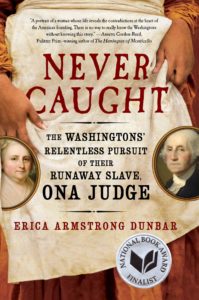 Karin Wulf: Women’s historical agency and ambitions are usually nearly invisible, not by accident but by design. These two books published in 2017, Never Caught: The Washingtons’ Relentless Pursuit of their Runaway Slave, Ona Judge, a National Book Award finalist by Erica Armstrong Dunbar, and The Weight of Ink, a novel by Rachel Kadish, one historical scholarship and the other historical fiction, probe the patterns of cultural suppression of women’s voices and the archival practices that have made it so difficult to tell the histories of women. I could measure my enthusiasm for these books by dollars invested; I bought both in multiple formats.
Karin Wulf: Women’s historical agency and ambitions are usually nearly invisible, not by accident but by design. These two books published in 2017, Never Caught: The Washingtons’ Relentless Pursuit of their Runaway Slave, Ona Judge, a National Book Award finalist by Erica Armstrong Dunbar, and The Weight of Ink, a novel by Rachel Kadish, one historical scholarship and the other historical fiction, probe the patterns of cultural suppression of women’s voices and the archival practices that have made it so difficult to tell the histories of women. I could measure my enthusiasm for these books by dollars invested; I bought both in multiple formats.
Never Caught is the fullest account of the life of Ona Judge (c1773-1858), who was born at Mount Vernon as a slave to George and Martha Washington, and escaped to freedom in 1796. The Weight of Ink is the story of Ester Velasquez, a fictional Jewish thinker and writer in seventeenth-century Amsterdam and London. Their circumstances are profoundly different; Judge, a real woman, was enslaved, while Velasquez, the imagined character, was free, and in this there can be no comparison. Residents of Philadelphia when it was the capitol city, Judge and the Washingtons came to understand the implications of Pennsylvania’s abolition law; were any slave to remain there, they might be able to claim their freedom. The Washingtons tried to maneuver around the law, rotating enslaved men and women from Philadelphia back to Mount Vernon just often enough. But Judge slipped away. With the help of the free black community, she boarded a ship for Portsmouth, New Hampshire, and she lived the rest of her life in that northern state. It was not an easy life, and one lived with in constant fear that the Washingtons would pursue her, as they did aggressively through the late 1790s.
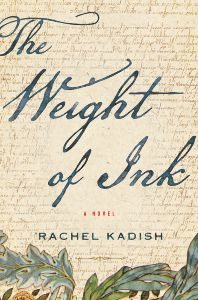 Secondary characters help reveal the harsh challenges of these women’s lives, and of recovering their history. In Judge’s case, it is George and Martha Washington, who were shocked that she would so coolly evaluate and then seize the opportunity for freedom. The Washingtons’ prominence was the reason for the remaining historical traces of Judge, including an interview she gave to an abolitionist newspaper in the 1840s. In The Weight of Ink, Kadish draws Velasquez as a philosopher, initially a scribe for one of the early rabbis to settle in London, and a restless intellect whose correspondence with such figures as Spinoza she disguised with a pen name. A twenty-first century historian chances on her manuscripts; hidden for centuries, their recovery is a reflection on the longstanding negation of women’s independent and intellectual lives and the hard work necessary, as with Dunbar’s research on Judge, to recover them. Kadish’s deep research in the history she depicts is an essential part of the book’s appeal.
Secondary characters help reveal the harsh challenges of these women’s lives, and of recovering their history. In Judge’s case, it is George and Martha Washington, who were shocked that she would so coolly evaluate and then seize the opportunity for freedom. The Washingtons’ prominence was the reason for the remaining historical traces of Judge, including an interview she gave to an abolitionist newspaper in the 1840s. In The Weight of Ink, Kadish draws Velasquez as a philosopher, initially a scribe for one of the early rabbis to settle in London, and a restless intellect whose correspondence with such figures as Spinoza she disguised with a pen name. A twenty-first century historian chances on her manuscripts; hidden for centuries, their recovery is a reflection on the longstanding negation of women’s independent and intellectual lives and the hard work necessary, as with Dunbar’s research on Judge, to recover them. Kadish’s deep research in the history she depicts is an essential part of the book’s appeal.
Early on, enthusiastic about Never Caught, I assigned it to a local reading group for lifelong learners, and made a primary source packet to spur discussion of reading scholarship with a close eye on the relationship of argument to evidence. It’s impossible to overstate how important this book is for early American history. Other scholars, writing about Washington and slavery, have discussed Ona Judge, and the new exhibit at Mount Vernon about the lives of the hundreds of people enslaved there is very compelling. But centering Judge in her own story is a profound act of historical repositioning. It not only illuminates her life, that of her family and the community that sheltered her, and the Washingtons’ complicity in the harshest features of racial slavery, but accentuates the claim of women everywhere to authorship of their own lives, no matter the powerful constraints under which they live and labor. How did the authors know how much we were going to need these books in 2017? Of course, they didn’t, and of course the issues they are writing about have long, complex histories. When asked why she left President and Mrs. Washington, Ona Judge said very simply that “she wanted to be free.”
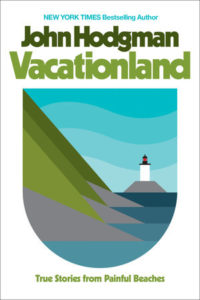 David Crotty: If you read only one collection of “white privilege mortality comedy” this year, then surely Vacationland: True Stories from Painful Beaches by John Hodgman is one you want. Hodgman, still probably best known as the “PC” in a series of Apple commercials, continues his remarkable evolution from being a literary agent to a minor television personality, to now a winningly charming memoirist. Hodgman’s previous books (the glorious audiobook for one was covered here) were collections of trivia, all entirely invented by the author. But, as he notes, now that everyone is making up fake facts, he had no choice but to delve into the reality of his life.
David Crotty: If you read only one collection of “white privilege mortality comedy” this year, then surely Vacationland: True Stories from Painful Beaches by John Hodgman is one you want. Hodgman, still probably best known as the “PC” in a series of Apple commercials, continues his remarkable evolution from being a literary agent to a minor television personality, to now a winningly charming memoirist. Hodgman’s previous books (the glorious audiobook for one was covered here) were collections of trivia, all entirely invented by the author. But, as he notes, now that everyone is making up fake facts, he had no choice but to delve into the reality of his life.
Vacationland tells of Hodgman’s journey between three wildernesses, the western Massachusetts of his youth, the Maine coast of his current life, and the dark forest of middle age, parenthood, and coming to grips with one’s (fleeting) place in the world. The book particularly resonated with me, as we’ve grappled with the concepts of diversity both here on The Scholarly Kitchen and across the scholarly communications landscape. Hodgman, writing from a position of privilege, about one of the whitest areas of America, grapples with how to be a participant in a society where one’s presumptions about being the hero of the narrative are no longer valid.
Hodgman’s writing is unfailingly kind and thoughtful, and is able to be laugh-out-loud funny without resorting to making others the butt of his jokes. Vacationland is a rare gem, both hilarious and poignant, and a book that continues to linger in my mind.
My other favorite book for the year, Damon Krukowski’s The New Analog: Listening and Reconnecting in a Digital World, is reviewed in full here.
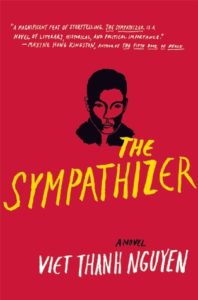 Joe Esposito: Every year I set a reading project, which is intended to supplement my otherwise haphazard reading of science fiction, popular science, and the occasional classic. This year my project was to read fiction by or about Asians and Asia. This took me through Ruth Ozeki’s A Tale for the Time Being (perhaps the weakest of the group); Han Kang’s The Vegetarian, which won the Booker International Prize; the PEN/Faulkner winner, Julie Otsuka’s The Buddha in the Attic; and Chang-rae Lee’s Native Speaker, which is a powerful and poetic book. On the strength of Native Speaker, I picked up a copy of the author’s A Gesture Life, which now sits in the queue on my bedside table. But first I have to finish Life and Death are Wearing Me Out by Nobel laureate Mo Yan. About twenty years ago I started a similar project for books about Japan and opened up Kazuo Ishiguru’s Remains of the Day, which, to my surprise, was about an English butler: I was fooled by Ishiguru’s name. On the other hand, Ishiguru also wrote An Artist of the Floating World, which I also read this year, and it clearly counts for my Asia project, as it is set in post-war Japan.
Joe Esposito: Every year I set a reading project, which is intended to supplement my otherwise haphazard reading of science fiction, popular science, and the occasional classic. This year my project was to read fiction by or about Asians and Asia. This took me through Ruth Ozeki’s A Tale for the Time Being (perhaps the weakest of the group); Han Kang’s The Vegetarian, which won the Booker International Prize; the PEN/Faulkner winner, Julie Otsuka’s The Buddha in the Attic; and Chang-rae Lee’s Native Speaker, which is a powerful and poetic book. On the strength of Native Speaker, I picked up a copy of the author’s A Gesture Life, which now sits in the queue on my bedside table. But first I have to finish Life and Death are Wearing Me Out by Nobel laureate Mo Yan. About twenty years ago I started a similar project for books about Japan and opened up Kazuo Ishiguru’s Remains of the Day, which, to my surprise, was about an English butler: I was fooled by Ishiguru’s name. On the other hand, Ishiguru also wrote An Artist of the Floating World, which I also read this year, and it clearly counts for my Asia project, as it is set in post-war Japan.
Is there a best book here? With all due respect to Chang-rae Lee and Kazuo Ishiguru, I would have to pick The Sympathizer by Viet Thanh Nguyen, which won the Pulitzer Prize. This is an outstanding and utterly surprising book. Set during and immediately after the Vietnam War, the narrator is a spy for the Communists, who is undercover in the employ of a South Vietnamese general. As the war comes to its end, the narrator is ordered to remain undercover and follow the South Vietnamese evacuees to the United States, where he continues to spy on the general and his counter-revolutionary organization. On a return to Vietnam, still undercover, the narrator is captured and tortured by the Communists, until he is eventually freed by his onetime handler.
The writing in this book is like a series of lacerations. The critique of the U.S., from such an unexpected (to me) perspective, is acid. This is a book utterly devoid of sentimentality. It forced me to rethink my understanding (dim though it was) of the war and its aftermath. I highly recommend this book, but please forgive me if the reading of it is excruciating.
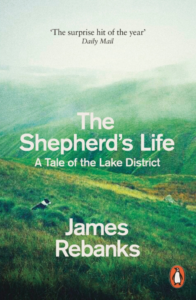 Charlie Rapple: This year, I have mostly been reading comfort books. My favorites, for simple page-turning goodness, have been Slow Horses by Mick Herron (feted as the new John Le Carré), The Dry by Jane Harper (whodunnit, achingly evocative of the drought-stricken, tinder-dry Australian outback), and two or three of Donna Leon’s Brunetti novels (because what’s not to like about an articulate, pensive and drily humorous detective, with the glories and the mundanities of Venice leaping off every page.) My best book of the year overall, though, has to be The Shepherd’s Life by James Rebanks. A fascinating insight into life on a hill farm (imagine those in Beatrix Potter stories — she farmed near Rebanks), the unforgiving terrain means this kind of farming has changed little over the centuries, and Rebanks’ beautiful writing celebrates the ancient skills of sheep rearing, the almost extrasensory relationship between farmer and dog, the hints and tips shared from generation to generation that enable reading of and communion with the landscape. It’ll make you want to head for the hills — in a good way.
Charlie Rapple: This year, I have mostly been reading comfort books. My favorites, for simple page-turning goodness, have been Slow Horses by Mick Herron (feted as the new John Le Carré), The Dry by Jane Harper (whodunnit, achingly evocative of the drought-stricken, tinder-dry Australian outback), and two or three of Donna Leon’s Brunetti novels (because what’s not to like about an articulate, pensive and drily humorous detective, with the glories and the mundanities of Venice leaping off every page.) My best book of the year overall, though, has to be The Shepherd’s Life by James Rebanks. A fascinating insight into life on a hill farm (imagine those in Beatrix Potter stories — she farmed near Rebanks), the unforgiving terrain means this kind of farming has changed little over the centuries, and Rebanks’ beautiful writing celebrates the ancient skills of sheep rearing, the almost extrasensory relationship between farmer and dog, the hints and tips shared from generation to generation that enable reading of and communion with the landscape. It’ll make you want to head for the hills — in a good way.
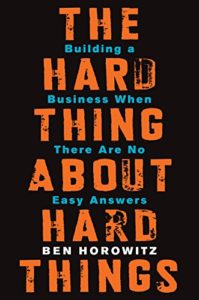 Tim Vines: Aside from the birth of your first child, there’s little that matches the cocktail of emotions arising from founding your own business. Many good or even great things might happen, and (equally), many terrible things might happen too. While there are many, many books dispensing advice to entrepreneurs (not to mention getting advice from more-or-less everyone you meet), most books focus on minimizing or avoiding the classic pitfalls that await every start-up. Trouble is, each startup is treading is own unknown path, so it’s inevitable that you’re going to fall flat on your face at some point.
Tim Vines: Aside from the birth of your first child, there’s little that matches the cocktail of emotions arising from founding your own business. Many good or even great things might happen, and (equally), many terrible things might happen too. While there are many, many books dispensing advice to entrepreneurs (not to mention getting advice from more-or-less everyone you meet), most books focus on minimizing or avoiding the classic pitfalls that await every start-up. Trouble is, each startup is treading is own unknown path, so it’s inevitable that you’re going to fall flat on your face at some point.
That’s where The Hard Thing about Hard Things by Ben Horowitz comes into its own: few have fallen harder than Ben Horowitz, and he takes the reader through a whole series of “OMFG what just happened” crises that he endured while CEO of LoudCloud and Opsware. For example, facing certain bankruptcy during the dotcom crash (their customers went bust) and completely unable to attract venture capital, he took his company through an IPO, just one of 19 that year. The book is peppered with fantastic quotes – “if you have to eat shit, don’t nibble” – along with advice on, for example, firing executives, motivating teams when the company is in meltdown, and what to look for in mentors. Better still, it’s delightfully short and to the point, and avoids the classic business book trope of repeating the same idea in ever greater detail in each ensuing chapter. Given that everyone will eventually find themselves in a monumental work crisis of their own or someone else’s making, I highly recommend being forearmed by this book.
